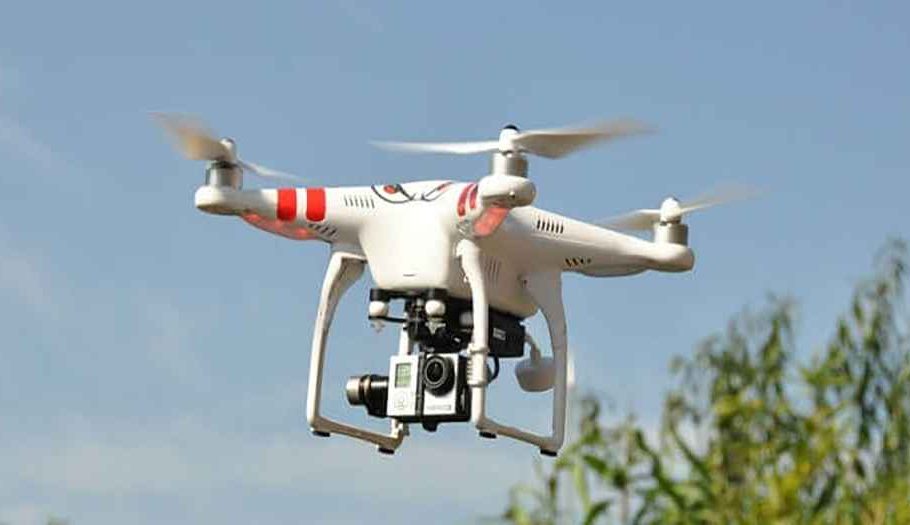
Iran’s Parliament: Civilian Drones Require Official License and Ownership Certificate
Iran’s Parliament has passed a law regulating the ownership, trade, and usage of civilian drones, requiring documentation, licensed operation, and compliance with national security protocoles.
Iran’s Parliament has passed a comprehensive law regulating the ownership, trade, and usage of civilian drones, requiring official documentation, licensed operation, and compliance with national security protocols. The legislation was passed during a public session on Sunday, June 30, as part of the review of the "Remote-Controlled Civilian Aircraft Regulation Bill" by the National Security and Foreign Policy Committee.
Official Ownership Certificate Mandated by Police Authority
According to Article 6 of the bill, which was passed by lawmakers, an official ownership document must be issued for each civilian drone. This document must include a unique identification number, technical specifications (including color, body, and motor), the owner's identity, and the intended usage. The responsibility for issuing these certificates and assigning unique IDs lies with the Law Enforcement Command of the Islamic Republic of Iran (FARAJA).
Additionally, the law stipulates that any transfer of ownership, usage rights, or operational delegation of a civilian drone must be executed via official documentation and only to individuals or entities with valid licenses. Otherwise, both parties involved in such transfers will face penalties equivalent to those for possessing or transporting unauthorized drones.
Article 7 further states that any modification to a drone’s technical features — such as its body color, motor, attachments, or usage category — must be approved by FARAJA. A new ownership certificate must also be issued in accordance with regulatory provisions. Violators will be subject to penalties outlined in Article 14.
Licensed Operations and Central Flight Registration System
Article 8 of the bill mandates that all drone operations must be conducted by licensed individuals or organizations using drones that have official ownership documents and valid pilot certifications. Flight plans must be registered and approved in a designated system.
The first note under Article 8 requires Iran Airports and Air Navigation Company to establish a digital system for registering and verifying flight plans — including details like time and flight zone — within three months of the law’s enactment. This system must be accessible in real-time to national security and air defense entities. No drone operations may occur without proper flight plan registration and approval.
The second note specifies that drone operations in Tehran and Alborz provinces require authorization from the Sarallah Headquarters of the Islamic Revolutionary Guard Corps (IRGC).
According to the third note, the Civil Aviation Organization must upgrade its licensing platform to integrate military and intelligence agency approvals within six months of the law’s implementation.
Note four stipulates that operational use of drones for services can only be carried out by licensed individuals or companies with professional credentials. All flight data must be recorded and provided to competent authorities upon request.
Note five assigns the task of defining operational and surveillance mechanisms for drone flight zones to a working group formed under the provisions of Article 3, to be completed within three months.
Designating Recreational Drone Zones and Security Control
Article 9 obligates the Ministry of Sports and Youth to designate recreational and sports drone flying zones within the regulatory framework defined by the working group under Article 3, after receiving approval from the Civil Aviation Organization.
Under Article 10, the General Staff of the Armed Forces must, within three months of the law's implementation, coordinate with the Ministry of Defense to define policy and develop tracking, interception, control, and data reception systems for both domestic and imported civilian drones. These systems are to be deployed based on instructions approved by the Article 3 working group.

Operational Oversight and Licensing Authority
Article 2 establishes that procedures for supply, supervision, operation, and usage of drones by security agencies will be determined by a directive jointly issued by the Armed Forces General Staff, Ministry of Intelligence, Ministry of Defense, IRGC Intelligence Organization, and FARAJA, subject to approval by the Supreme National Security Council.
Article 3 assigns the National Security Council the responsibility of policy-making, coordination, and supervision over the implementation of the law. A dedicated working group on civilian drones will be established under its leadership, with members from key ministries, intelligence agencies, and defense bodies.
Drone Manufacturing and Technology Transfer Regulations
Article 4 requires the Ministry of Industry, Mines, and Trade (MIMT) to issue preliminary licenses for the industrial production of drones, subject to criminal background checks, security clearance from intelligence agencies, and defense approvals.
Note one clarifies that licensing for drone activities such as training, repairs, and pilot certification also requires the same approvals and must comply with Article 3 directives.
Note two mandates the Vice Presidency for Science, Technology, and Knowledge-Based Economy to support localization and tech transfer for drone production and to facilitate civilian-military knowledge exchange mechanisms in collaboration with the Ministry of Defense.
Note three states that drone pilot health and psychological standards must be confirmed by an official physician, with further background checks required for enrollment in licensed training centers.
Note four criminalizes unauthorized drone manufacturing, prescribing third-degree punishments under Article 19 of the Islamic Penal Code.
An additional section of Article 4 tasks the Vice Presidency with creating export frameworks for non-military drone technologies and ensuring streamlined export licensing in coordination with the Ministry of Defense.
Restrictions on Imports and Ownership Transfers
Article 5 bans the import of civilian drones and their components unless domestic alternatives are unavailable or technology development requires sample imports. All imports must be cleared through judiciary background checks, security vetting, and defense approvals under Article 3 procedures. Violators may be penalized under third-degree punishments.
Article 11 prohibits aerial data collection via civilian drones — including photogrammetry, geophysics, radiometry, magnetometry, and laser mapping — in border and sensitive areas without authorization from the Armed Forces Geographic Organization.
Drone Trade and Ownership Without Documentation Banned
Article 12 prohibits the trade, use, transport, or storage of drones lacking official ownership documentation. Offenders face fifth-degree penalties and equipment confiscation.
Note one requires all undocumented drone owners to apply for ownership documentation within three months of the law taking effect. FARAJA must review applications within the same period.
Note two obligates owners deemed ineligible for drone registration to surrender their devices to the Ministry of Defense, which must pay fair market value based on official appraisals.
Note three prohibits all drone flights without ownership documents after the law’s enforcement date. FARAJA may issue temporary flight permits for up to three months pending documentation.
Airspace Violations and National Security
Article 13 criminalizes unauthorized drone flights in national airspace. First-time offenders face equipment confiscation; repeat offenses result in fifth-degree punishment. During wartime or heightened security periods, the maximum sentence applies.
Article 14 imposes maximum penalties for drone operations with military intent or used to commit crimes against national or international security, including espionage and terrorism, referencing Iran’s penal codes and the new espionage law.
Article 15 prohibits drone flights over military or protected zones. Offenders may be sentenced to fourth-degree imprisonment unless a harsher punishment applies. Armed forces must detain violators and deliver them to competent authorities.
Article 16 authorizes judiciary officers to confiscate unauthorized drones and licenses. In Tehran and Alborz, cases must be submitted to the Sarallah HQ; elsewhere, to the IRGC or Intelligence Ministry.
Theft or Loss Must Be Reported
According to Article 17, in the event of drone loss, theft, or incident, owners or operators must report the issue to security authorities within 24 hours. Failing to do so may result in suspension of ownership documents or operating licenses for up to six months.
Civil Liability and Insurance Requirements
Article 18 makes drone owners and operators legally responsible for any material or moral damages caused by their drones, including breaches of personal privacy.
Article 19 requires all owners or operators to obtain third-party liability insurance before flying. Iran’s Central Insurance Organization must prepare the implementation mechanism within three months.
Article 20 mandates all government agencies and armed forces to insure personnel for liability in drone operations.
Foreign Ownership and Trade Prohibited
Article 21 bans foreign nationals from importing, exporting, manufacturing, transporting, purchasing, or conducting legal transactions involving drone ownership or benefits. Violators are subject to fourth-degree imprisonment.
Implementation Timeline and Regulation
Article 22 instructs the Ministry of Defense, along with other relevant ministries, to draft the executive bylaw for this legislation within three months of its enforcement. The bylaw must be approved by the Supreme Armed Forces General Staff and ratified by the Cabinet.












